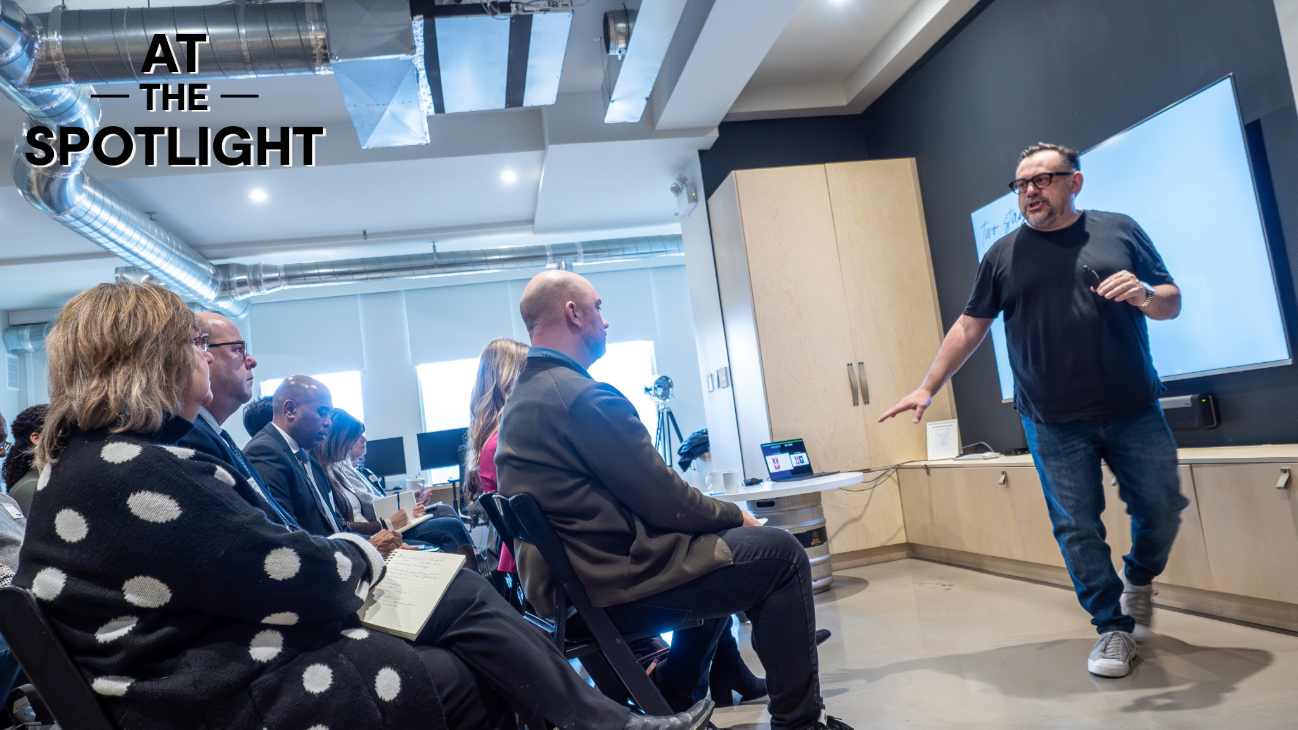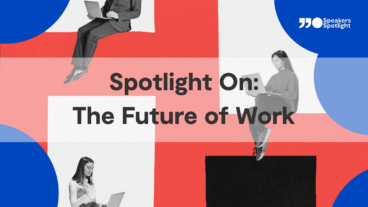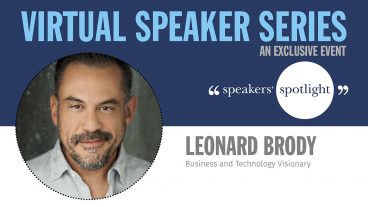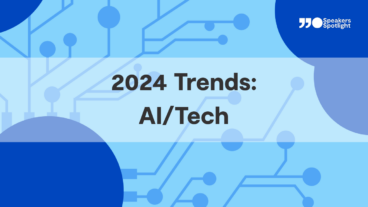Why do leaders fail? Because they’ve yet to understand the past, says Leonard Brody, a business and technology visionary who has been involved in the founding and successful exit of numerous companies.
Leonard recently joined us as part of our client exclusive At The Spotlight event series, where he took us on a fascinating exploration of our past — breaking down the cyclical patterns at play — before diving deep into the trends shaping this next critical period in technology, the economy, and the future of work.
The Technological and Economic Pattern at Play
Since humans first began their relationship with technology 300 years ago with the advent of the steam engine and the printed book, we’ve experienced a cyclical pattern of innovation and growth. This pattern begins with a “big bang” moment, which Leonard defines as an event where we see a 30-35% shift in the way we consume and communicate on a global level.
Big bang events are sparked by financial crises, war, technological shifts, and/or medical occurrences, with climate soon to become a fifth cause, Leonard added. Some examples of big bang events in recent history includes the COVID-19 pandemic, the war on Ukraine, and the recent banking meltdown with the collapse of Silicon Valley Bank (SVB).
While we may think these events are unique, Leonard said, they aren’t. These big bang events are scattered throughout history and they are definable, repetitive, and predictable. It is rare for them to last longer than 3-4 years and result in an economic devaluation lasting 9-18 months, followed by a period of exponential growth, which can last 3-12 years.
When these events occur, we tend to panic, Leonard said. What we should be doing is asking ourselves, how would I behave if growth is inevitable? Let that be your guiding light through the uncertainty.
For example, during the pandemic several airlines were dropping their gate slots at an alarming rate. American Airlines saw this as an opportunity to acquire gate slots at 10 core airports for pennies. They assumed that post-pandemic would be the busiest travel season we’ve ever seen, and they were right.
The Next 730 Days: Trends to Watch
In our exponential world, Leonard said, it’s impossible to accurately predict anything beyond two years, or 730 days. He shared insight into some of the key forces shaping the next two years in three main areas: technology, the economy, and the future of work.
The Future of Work
The return to the office post-pandemic has now leveled off at about 50%. There is no question that the way we work has changed, and this will greatly impact talent attraction and retention strategies moving forward, Leonard said.
The Economy
While there is still much debate about whether or not we’re in a recession, we’re not, Leonard said. Unemployment rates and the GDP are two main indicators and they have remained steady.
Since the great depression, governments have gotten quite good at managing recessions, Leonard said, because they practice quantitative easing. This is when the US or Canadian treasury buys their own bonds to keep prices down. This has proven to be quite effective at managing the bumpiness of the economy.
What we’re not good at yet, Leonard said, is taking that money back out of the economy once it has steadied. So, the high inflation we’re experiencing right now is a result of us trying different ways to pull out the $5 trillion dollars that was poured into the economy during the pandemic.
Technology
In the next seven years, Leonard said, we’ll see the largest GDP growth in modern history because of the intersection of several new technologies, largely artificial intelligence as well as robotics, cloud computing, etc.
This big question — will AI replace us? No, Leonard said, there is zero historical precedence where a mass event leads to mass unemployment. Instead, it leads to the development of new jobs. 70% of today’s jobs did not exist in 1950, he continued, so while some roles will no longer be needed, they will be replaced by new jobs.
Some industries that will be impacted by tech sooner than later will be:
- Healthcare, with AI discovering and creating 60-70% of new drugs in the near future.
- Real Estate, with housing affordability being righted by financial engineering. Homeowners will no longer be dependent on mortgages. Instead, they will own 60% of their homes with the remaining 40% coming from liquid tradeable assets that behave similar to the stock exchange. Realtors will be split by those who sell real estate and those who sell securities.
- Wellness: This industry will see 10x category growth as more people invest in healthcare devices that can quantify their health.
The biggest challenge facing us ahead with AI is the moral and democratic shortfalls of the technology. Largely, who is building AI technology and how do we counteract human biases being coded into our future, and how do we ensure AI isn’t used to interfere with our elections.
Book Leonard Brody for Your Next Event
It was an information packed hour spent with Leonard as he walked us through a data and research-driven snapshot of what we can expect over the next two years and, more importantly, how leaders and organizations can best prepare for the changes ahead.
Leonard tailors his keynote presentations for his audiences. Contact us to learn more about Leonard and how he can help your organization ready itself for the rapid pace of change, innovation, and disruption facing us all.




